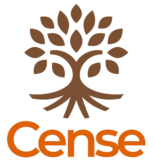In this latest post in a series on Developmental Evaluation (DE) and its traps, we look at the innovator’s trap of culture. In a quote widely attributed to Peter Drucker
Culture eats strategy for lunch
Culture is basically “the way things are done around here”, which includes the policies, practices, and people that make what happens, happen. Culture can be a trap when we fail to prepare for the change in how we do things that comes with adopting a developmental approach.
Just as we might fear success (discussed in an earlier post), we may also not prepare (or tolerate) it when it comes. Success with one goal means having to set new goals. It changes the goal posts. It also means that one needs to reframe what success means going ahead.
Many successful sports teams face the problem of reframing their mission after winning a championship: what it takes to win the first time is different when the motivation, context, and opportunities shift because of that victory. The same thing is true for organizations.
Building a culture of innovation
We’re not naïve enough to think that we can simply offer you a few bullet points and expect you to change your culture overnight. It is a big, important job. However, there is much research on behaviour change and organizational development that we’ve drawn on to help get you started.
- Manage deadlines differently. Deadlines drive much of our organizational behaviour and strategy, yet research has shown that deadline-driven work is less satisfying, that people’s decision-making gets impaired under the stress of urgency, and that priority isn’t always given to the more important tasks. Consider developmental milestones, which are similar to what we use in other areas of life. It’s a mindset that looks at tasks, accomplishments, and expectations in an evolving context with adaptive targets.
- Planning your stops as well as your starts. Developmental Evaluation can not only help you build out your innovation, but it can also determine what needs to stop. This means making hard choices about what kind of activities you might continue, what needs to be stopped, and what new things you wish to build out. The Tamarack Stop Start Continue tool provides a practical means to guide an organization through the process of making these strategic decisions. Deciding what you will stop is just as important as creating innovations.
- Measure performance compassionately. New research has emerged to show that intensive performance measurement can actually hamper the performance of an organization. Collecting too much data or making it onerous to do, not disclosing the purposes of the data, not using data collected, failing to engage those involved in the program in the design of the data collections, or neglecting to collect context-rich data that can help understand the mediators and moderators of performance are ways to alienate people from evaluation and limit its use. A strong DE approach seeks to engage users, making for more effective evaluation overall.
- Give data back. Show those involved in the program and the evaluations associated with it what the data reveals and what decisions are made from it. By making evaluation data transparent, you build trust, but also a culture of innovation by showing the purpose of the data and the ways in which it is used to make decisions. This kind of accounting to your users and stakeholders is part of the culture development for innovation.
By getting the right data, using it respectfully, and making it visible are ways in which the culture of an organization can change through developmental evaluation and lead to the kind of system shifts that allow great ideas to emerge and flourish.
Interested in learning more about what DE is and how implementing evaluation in this manner can support your innovation efforts? Contact us to find out more.

